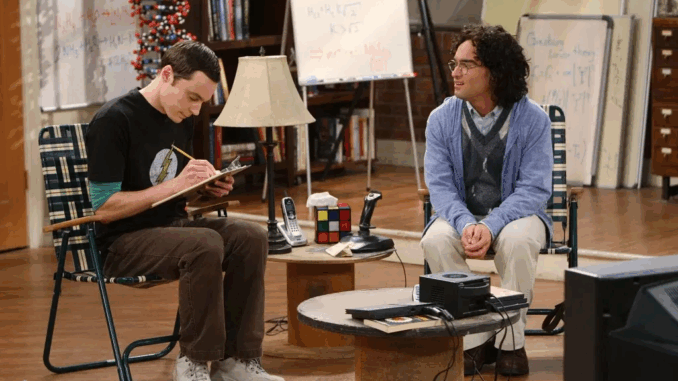
When The Big Bang Theory first aired in 2007, few viewers could have predicted that Sheldon Cooper — the socially awkward, hyper-intelligent physicist obsessed with comic books, trains, and strict routines — would eventually become the emotional centerpiece of the series. But over the course of 12 seasons, Sheldon’s transformation wasn’t just compelling television; it became one of the most unexpected and rewarding character arcs in sitcom history.
The Early Days: Quirks, Rules, and Zero Tolerance
At the beginning, Sheldon was the personification of rigidity. He had a designated spot on the couch, a detailed bathroom schedule, and a multi-page roommate agreement that governed nearly every aspect of living with Leonard. He corrected everyone around him with unapologetic confidence, dismissed emotional nuance, and couldn’t stand physical contact. For many fans, he was hilarious—but also nearly impossible to imagine in a long-term relationship, let alone giving a heartfelt acceptance speech for a Nobel Prize.
What made Sheldon such a strong comedic force in the early seasons was his complete detachment from what most people would consider “normal” social behavior. He was the ultimate straight man, delivering cold, literal logic in a world filled with chaos and human messiness.
But that emotional detachment was never framed as cruelty. Instead, it was a shield. And over time, the series peeled it back.
Meeting Amy Farrah Fowler: The Catalyst for Change
Sheldon’s introduction to Amy Farrah Fowler marked the beginning of his slow but steady emotional evolution. At first, their relationship was driven by shared intellectual superiority and mutual social disinterest. But Amy had one thing Sheldon didn’t: a quiet desire for deeper emotional connection.
Amy didn’t try to change Sheldon. She accepted him fully—but she challenged him to grow. Their relationship unfolded at a pace entirely on Sheldon’s terms, respecting his boundaries while nudging him, episode by episode, toward emotional awareness. Their first kiss, his decision to hold her hand, and eventually the decision to propose marriage were not played for melodrama. They were built on earned growth, and viewers felt every milestone.

The Long Road to Empathy
One of the most masterful things about The Big Bang Theory is that it never forced Sheldon to abandon who he was. He didn’t suddenly become “normal.” Instead, he learned to function more fully within the world around him, while remaining authentically himself.
Moments like comforting Penny, apologizing to his friends, or showing concern for his sister Missy revealed layers of Sheldon that had been developing slowly all along. These moments weren’t loud. They were subtle — but they were everything.
Even his group of friends, who once rolled their eyes at his antics, began to understand him better. And Sheldon, in his own way, learned how to appreciate them not just as colleagues or chess pieces in his ordered world, but as chosen family.
The Nobel Prize: Full Circle
By the final season, Sheldon and Amy achieve what they once only dreamed of: the Nobel Prize in Physics. But it wasn’t just the scientific recognition that resonated. It was Sheldon’s speech.
In front of the world, he broke from his rigid script. He looked at his friends — Leonard, Penny, Raj, Howard, Bernadette — and acknowledged their importance in his life. It was perhaps the most human moment of the entire series, and it left fans in tears.
This wasn’t just a man accepting a prestigious award. It was Sheldon Cooper recognizing, for the first time, how far he had come and how much others had shaped him.
Legacy of a Remarkable Arc
Sheldon Cooper became an icon for many reasons. His quirks made him unforgettable. His quotes are endlessly rewatchable. But it’s his emotional arc that solidified his place in television history.
Few sitcom characters undergo such nuanced development without losing their essence. Sheldon’s growth was authentic, slow, and deeply satisfying. By the end, fans didn’t just laugh at his eccentricities — they rooted for his happiness.
From “Bazinga!” to the Nobel Prize, Sheldon Cooper’s journey is a masterclass in character evolution. And it’s one that viewers will revisit for years to come, not just for the laughs, but for the heart behind the humor.